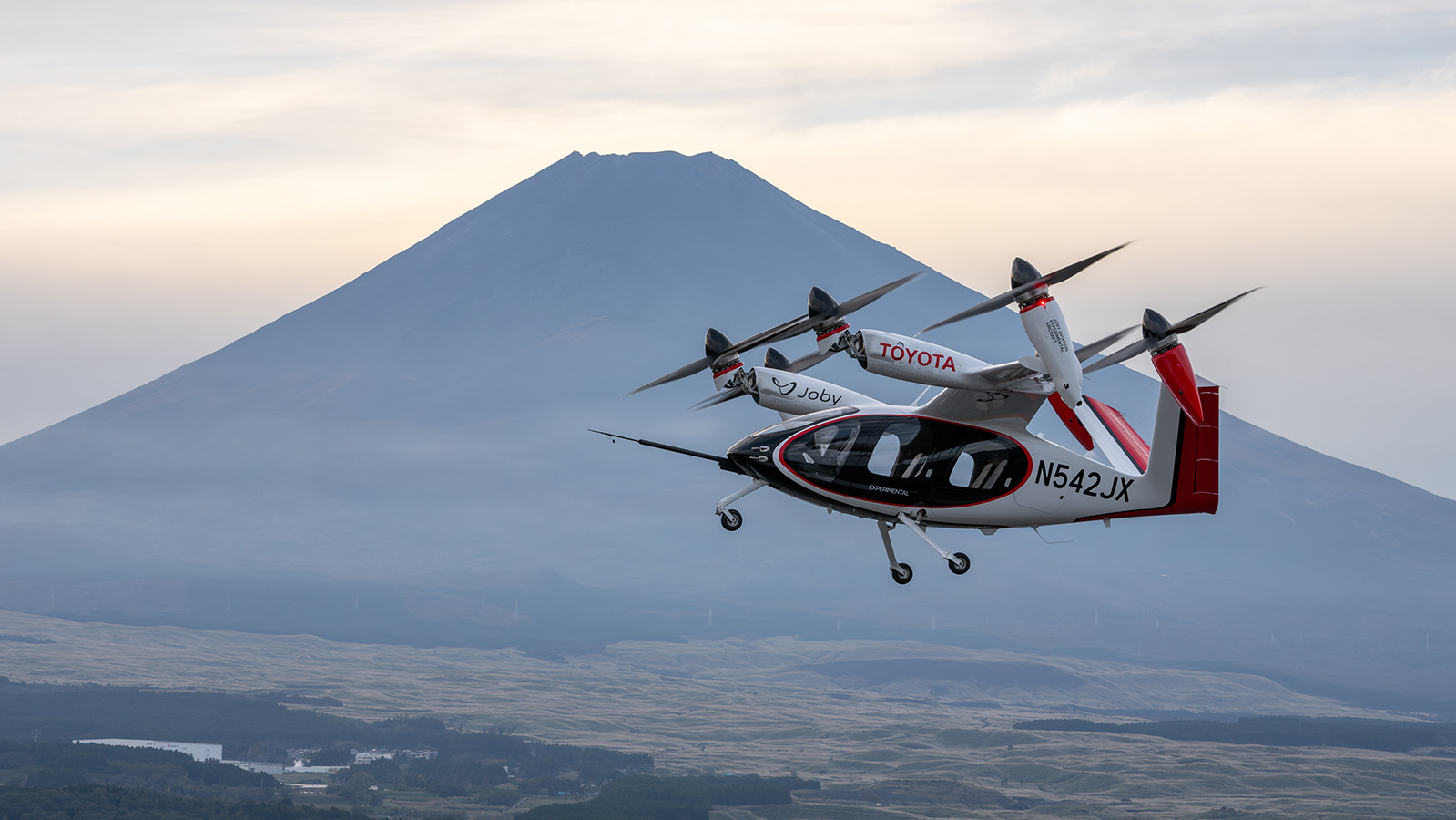Stay Up to Date
Submit your email address to receive the latest industry and Aerospace America news.
Joby Aviation last year flew one of its S4 electric air taxis from Toyota’s Higashi-Fuji Technical Center in Shizuoka, Japan. Credit: Joby Aviation
Aero Toyota, the largest civil operator of helicopters in Japan, wants to soon take advantage of Toyota’s close relationship with California electric air taxi developer Joby Aviation, according its president.
The company, which is 99.5% owned by Toyota, in July changed its name from Aero Asahi to reflect the relationship between the two companies and the automaker’s interest in aviation. Aero Toyota operates helicopters, fixed-wing airplanes and drones for emergency medical transport, broadcast news stations and offshore oil platforms, among other clients.
“We have 1,300 employees, and we operate all over” Japan, Aero Toyota president Hiroshi Kato told me in an interview. “Helicopters are very noisy, and Joby is much quieter. That will be one major advantage.”
For more about advanced air mobility, receive the True Mobility newsletter in your inbox.
With its densely populated cities, Japan has emerged as an early market for Joby, which has received $644 million from Toyota since 2017 with another $250 million pledged. The company announced in November that it flew one of its S4 prototypes in Japan for the first time in a demonstration near Mount Fuji. Additional flights are planned for October, during the Expo 2025 world fair in Osaka, and Joby last month announced it had expanded its partnership with Japanese airline ANA to carry passengers commercially in Japan.
Kato said Toyota has always had greater ambitions in aviation. However, achieving those requires Japan to first build out its infrastructure and adjust its regulations to allow for air taxi flights.
“Work needs to be done on battery charging stations and the vertiports for connecting flights to airports first,” Kato said.
- RELATED READING: Japan viewed as promising market for advanced air mobility
- RELATED READING: Toyota’s spending on Joby seen as validating air taxis in general
He also noted that Japan’s laws governing transportation companies, pilots and airspace are more restrictive than those of many other nations. For example, rideshare behemoth Uber’s launch in Japan was slowed by the country’s Road Transportation Act, which made it illegal for individuals to use private, unlicensed vehicles for paid transport services. The Japanese government modified parts of that law in 2024, but Uber still operates under unique restrictions in Japan, including being limited to specific areas and times when taxis may be in short supply.
As for air taxi operations, Kato said it’s yet to be decided how Joby aircraft would be integrated into Aero Toyota’s fleet.
“Aero Toyota is working to ensure proper safety operations, and we have yet to discuss details with Joby about the operating business model here,” he said.
About paul brinkmann
Paul covers advanced air mobility, space launches and more for our website and the quarterly magazine. Paul joined us in 2022 and is based near Kennedy Space Center in Florida. He previously covered aerospace for United Press International and the Orlando Sentinel.
Related Posts
Stay Up to Date
Submit your email address to receive the latest industry and Aerospace America news.




